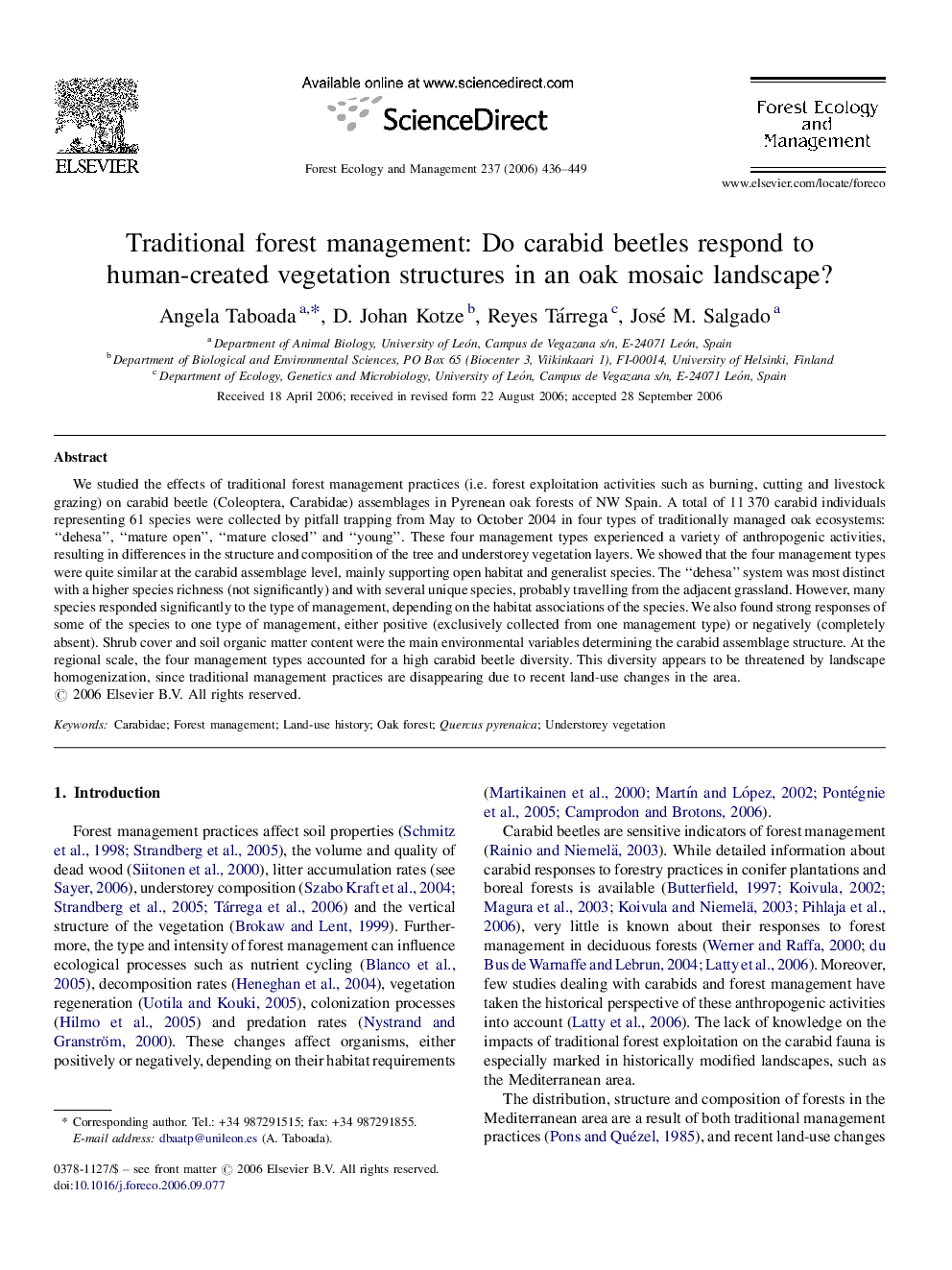| Article ID | Journal | Published Year | Pages | File Type |
|---|---|---|---|---|
| 89974 | Forest Ecology and Management | 2006 | 14 Pages |
We studied the effects of traditional forest management practices (i.e. forest exploitation activities such as burning, cutting and livestock grazing) on carabid beetle (Coleoptera, Carabidae) assemblages in Pyrenean oak forests of NW Spain. A total of 11 370 carabid individuals representing 61 species were collected by pitfall trapping from May to October 2004 in four types of traditionally managed oak ecosystems: “dehesa”, “mature open”, “mature closed” and “young”. These four management types experienced a variety of anthropogenic activities, resulting in differences in the structure and composition of the tree and understorey vegetation layers. We showed that the four management types were quite similar at the carabid assemblage level, mainly supporting open habitat and generalist species. The “dehesa” system was most distinct with a higher species richness (not significantly) and with several unique species, probably travelling from the adjacent grassland. However, many species responded significantly to the type of management, depending on the habitat associations of the species. We also found strong responses of some of the species to one type of management, either positive (exclusively collected from one management type) or negatively (completely absent). Shrub cover and soil organic matter content were the main environmental variables determining the carabid assemblage structure. At the regional scale, the four management types accounted for a high carabid beetle diversity. This diversity appears to be threatened by landscape homogenization, since traditional management practices are disappearing due to recent land-use changes in the area.
